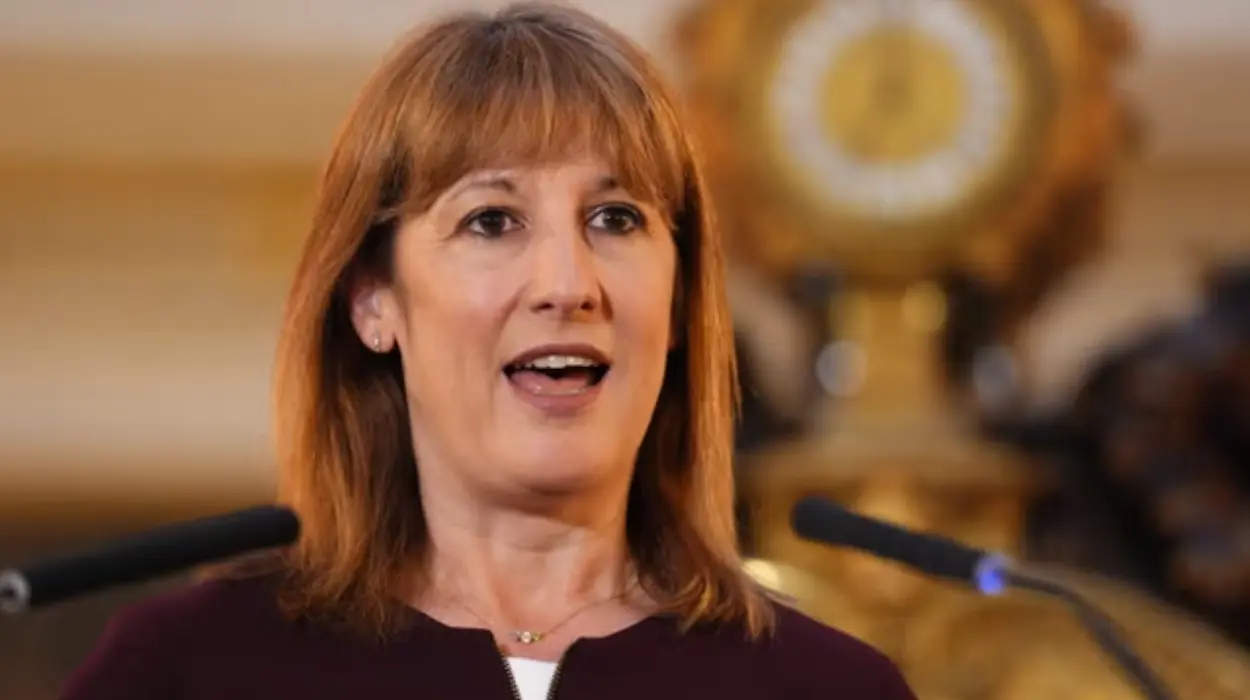Riyadh (Parliament Politics Magazine) – During her Saudi Arabia trip, Chancellor Rachel Reeves signalled possible tax rises in the upcoming Budget while seeking a trade deal to boost UK growth.
As reported by The Independent, Rachel Reeves suggested that tax rises are being considered in next month’s Budget to tackle a potential £50bn fiscal gap.
The chancellor hinted that tax changes may be considered to maintain “sufficient headroom” and keep public finances within fiscal rules.
What did Rachel Reeves say about potential tax rises?
Rachel Reeves reaffirmed Labour’s pledge not to raise income tax, NI, or VAT while facing questions on November’s budget shortfall.
When asked about a potential income tax rise, she said she wants to keep taxes low for workers, as the Budget process is still ongoing.
The Budget may include tax hikes, as the Institute for Fiscal Studies says £22bn must be found through taxes or cuts to meet fiscal targets.
Addressing Fortune Magazine’s global forum in Riyadh, the chancellor did not rule out tax increases as part of the upcoming Budget.
She said,
“The underpinning for economic growth is stability, and I’m not going to break the fiscal rules that we’ve set.”
Ms Reeves stated,
“We are going to reduce that primary deficit, we are going to see debt starting to fall as a share of GDP, because we need more sustainable public finances, especially in the uncertain world in which we live today.”
She said,
“So growth will be a big part of that Budget story, in a way that, frankly, I think growth has been neglected as a tool of fiscal policy in the last few years.”
The chancellor added,
“But we are looking, of course, at tax and spending to ensure that we both have resilience against future shocks by ensuring we’ve got sufficient headroom, and also just ensuring that those fiscal rules are adhered to.”
She is leading a UK delegation in Saudi Arabia, aiming to boost economic confidence ahead of the upcoming Budget.
During her visit, Ms Reeves expressed confidence that a Gulf Co-operation Council deal could be finalised, which the Treasury predicts could bring £1.6bn to the UK and add £600m to workers’ pay.
The chancellor admitted arriving slightly late to the Fortune conference, citing “productive meetings” on the Gulf trade deal.
Speaking at the event, Ms Reeves said she hopes attendees see value in pursuing the deal and expressed confidence it can be finalised.
When questioned about higher taxes on the wealthy, she stressed growing the economy as another way to improve finances.
Ms Reeves may introduce a mansion tax at the upcoming Budget, targeting properties over £2m with a 1% annual charge.
The chancellor defended the government’s policy toward the wealthy, addressing concerns over their departures from the UK.
She stated,
“Everybody knows that countries around the world are having to spend more on defence that we need to rebuild our public finances and our public services, and everyone who makes Britain their home should contribute to that.”
Ms Reeves added,
“We don’t want to drive anyone out of the UK, but we do want to make sure that we tax people fairly, people who make Britain their home, whichever country they or their parents are originally from.”
Speaking before departing for Saudi Arabia, she said,
“Our number one priority is growth, so I am taking Britain’s offer of stability, regulatory agility and world-class expertise directly to one of the world’s most important trade and investment hubs, making that case in our national interest.”
The chancellor added,
“After our landmark deals with the US, EU and India, we’re determined to build on that momentum by going further and faster on partnerships that create good jobs, boost business and bring investment into communities across the UK – from the North East to the Oxford-Cambridge corridor.”
What was Labour’s stance on the Tory Saudi oil deal?
Before taking office, the Labour Party slammed the Conservatives’ deal with Saudi Arabia.
Former deputy PM Angela Rayner called ex-PM Boris Johnson’s Saudi trip a “begging mission” to secure oil, highlighting human rights concerns.
She warned MPs that Britain had become “reliant on another murderous dictator to keep the lights on.”
One Labour MP said,
“The Saudis appear to be linked to a number of state-sanctioned murders. We ought to keep away from the regime.”
Why is the UK considering a mansion tax?
The UK is considering a mansion tax to raise over £2bn annually and help cover a £40bn public finance gap. It aims to ensure wealthier property owners contribute more fairly and to tackle regional wealth disparities through targeted property levies.
The main purpose of the mansion tax is to address wealth inequality by placing a higher tax burden on luxury property ownership, promoting a more progressive tax system.


